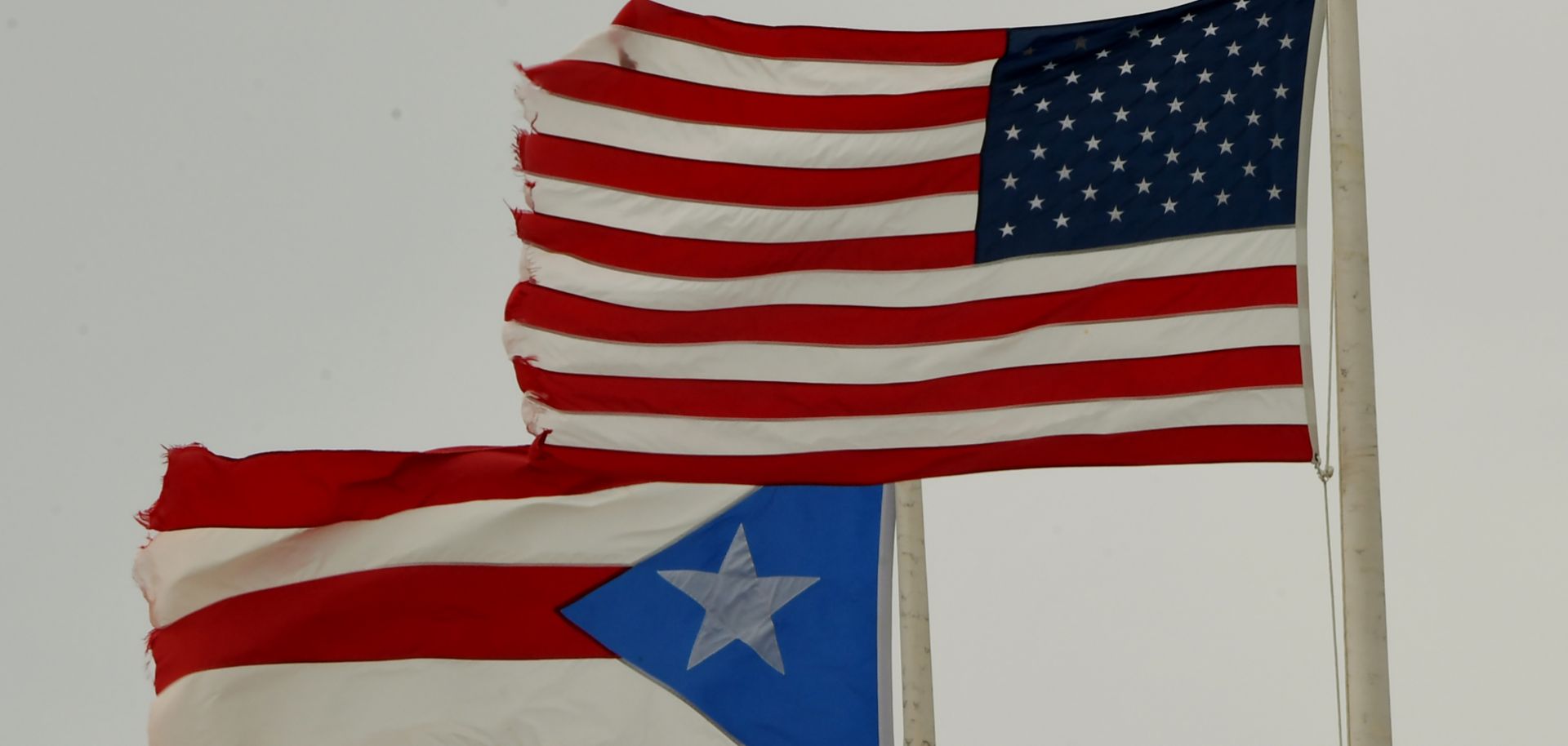ASSESSMENTS
Puerto Rico Won't Be the 51st State Anytime Soon
Oct 11, 2017 | 09:30 GMT

Puerto Ricans have long been able to live, travel and work freely in the United States, so statehood would bring the average Puerto Rican few material benefits.
(MARK RALSTON/AFP/Getty Images)
Highlights
- Popular opinion in the overseas U.S. territory of Puerto Rico has trended toward statehood, with about 97 percent of voters backing that option in a June referendum.
- Admitting Puerto Rico into the Union would alter the composition of the U.S. Congress, and House and Senate members could resist adding extra legislators who could sway close votes.
- Aside from political representation, statehood does not hold many material benefits for Puerto Ricans, because they are already U.S. citizens and have the right to work and to travel freely in the United States.
Subscribe Now
SubscribeAlready have an account?
